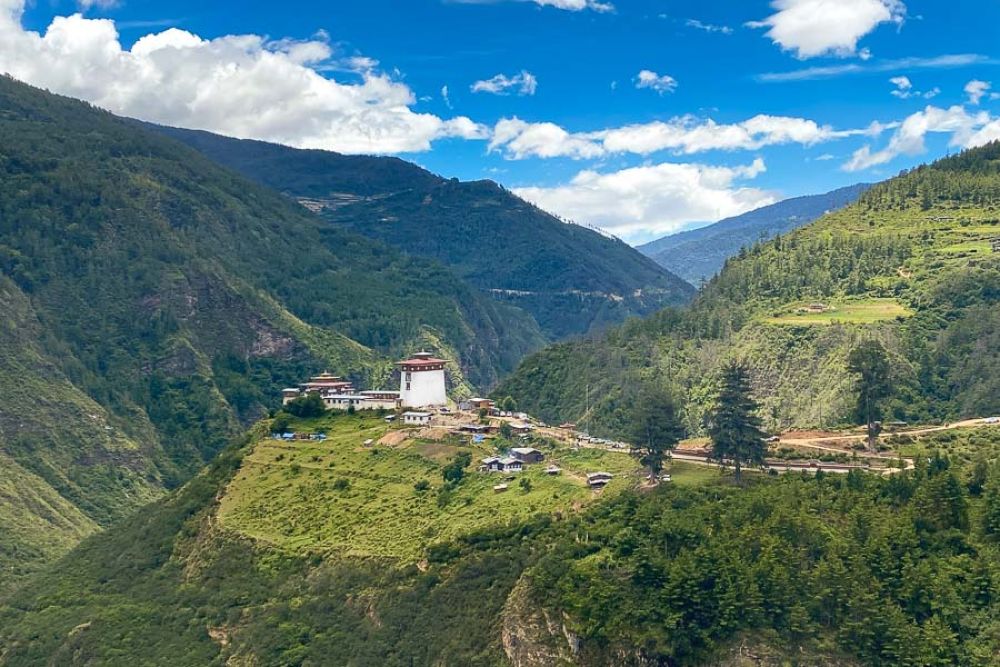

Nestled in the majestic landscapes of Paro, Bhutan, Dobji Dzong stands as a testament to the rich cultural heritage and the architectural prowess of Bhutanese history. Founded in the 16th century by Ngawang Chogyal, the brother of the Drukpa hierarch Zhigpo (also known as Chagzampa), the fortress has played an integral role in the region's defense system.
Commanding a strategic position, it overlooks the traditional route that connected the western and southern regions of Bhutan, serving as an essential bastion against invading forces and maintaining internal peace. Unique to Dobji Dzong is its distinction as one of the first of Bhutan's dzongs - fortified monasteries that are characteristic of the country's spiritual and administrative history.
The history of tourism at Dobji Dzong is relatively recent. Bhutan's policy of controlled tourism, aimed at preserving its unique culture and environment, meant that for many years access to places like Dobji Dzong was limited. It was only in the late 20th century that Bhutan cautiously opened its doors to foreign travelers, embracing a sustainable approach under the policy of "High Value, Low Impact Tourism".
With a steady increase in international interest in Bhutan's unique heritage, Dobji Dzong began to draw the attention of history buffs and cultural enthusiasts. The Bhutanese government has made efforts to preserve and restore the dzong, ensuring it remains an authentic representation of the country's past.
When visiting Dobji Dzong, tourists can expect to marvel at the traditional Bhutanese architecture, with its imposing walls, beautifully detailed woodwork, and classic Buddhist frescoes. While not as large as some of the other famous dzongs in Bhutan, its remote location and historical significance provide a serene and contemplative experience.
Accessibility to Dobji Dzong can be challenging, which only adds to its allure for those seeking a more off-the-beaten-path adventure. The journey to Dobji Dzong is an adventure in itself, often involving a hike that rewards visitors with panoramic views of the valley below.
As global tourism evolves, Bhutan and sites like Dobji Dzong have seen a shift towards experiential and sustainable tourism. Visitors are increasingly eager to engage with local communities, understand the authentic Bhutanese way of life, and contribute positively to the preservation of both the natural and cultural environments.
The government's initiatives to promote sustainable travel, such as the mandatory daily tariff for international tourists that includes accommodation, food, transportation, and a licensed Bhutanese tour guide, ensures that tourism benefits both the local economy and the conservation efforts.
Presently, Dobji Dzong remains a hidden gem that offers a genuine glimpse into Bhutan's medieval past and an immersive cultural experience, making it an essential stop for any traveler to this beautiful Himalayan kingdom.